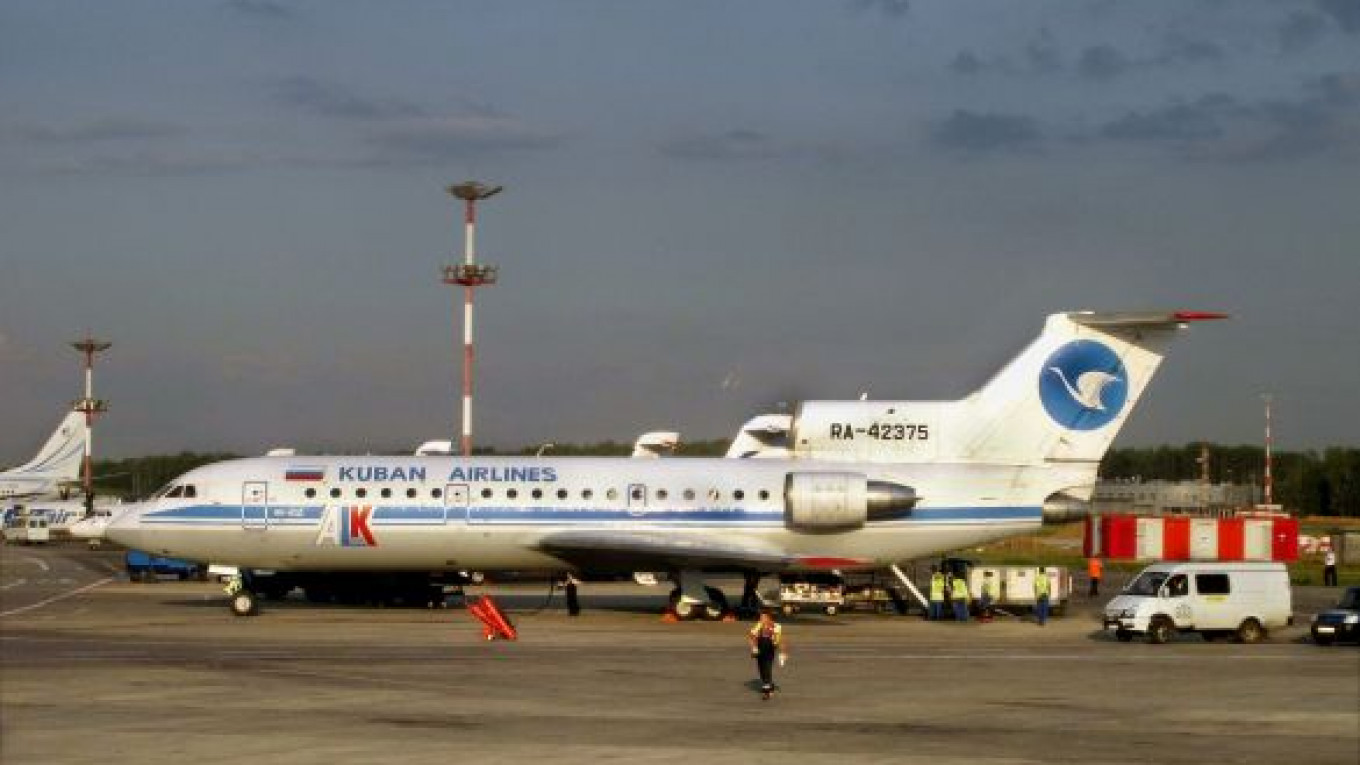Small and midsized airlines may have won a stay of execution after the Economic Development Ministry shot down plans to close airlines with fewer than 10 aircraft.
The minimum fleet size was put forward by the Transportation Ministry as a part of a review of safety following the Petrozavodsk air crash this summer.
Forty-three people died when a Tu-134 belonging to the now-defunct RusAir charter company crashed near the Karelian town in June. Investigators blamed both that crash and another in Yaroslavl in September on pilot error.
The proposals would require airlines making regular flights to have fleets of at least 10 planes by Jan. 1, 2012, and at least 20 by Jan. 1, 2013. Charter airlines would only need a fleet of five aircraft.
But in a document released Wednesday, the Economic Development Ministry said the link between safety and fleet size is "not proved," and the proposals would adversely affect competition, drive up ticket prices and lead to closure of regional airports.
Experts said the decree was now unlikely to enter force in its current form. "It's not clear what the way forward is now. I imagine they'll have to come to an agreement between ministries," said Alexei Sinitsky, chief editor of Air Transport Review, an industry journal. He added that he personally sees no connection between safety and fleet size.
There are about 150 airlines in Russia, but the top five carriers — including Aeroflot, Transaero and UTair — account for 56 percent of passenger transport, and the top 15 — for more than 81 percent, Sinitsky said, suggesting that the industry could handle consolidation without catastrophic results.
Most small to midsized airlines could afford to add one or two planes to their fleets to meet the 10-plane limit, Sinitsky said by phone.
But he said the fate of tiny, three- or four-plane airlines that often run the only services to remote communities in Siberia and the Far East is "a real problem."
"From my point of view, there's no connection at all between safety and fleet size," Sinitsky said.
Russian airlines carried 49.37 million passengers in January to September this year, up 12.8 percent on the same period last year, the Federal Air Transportation Agency said Thursday.
A Message from The Moscow Times:
Dear readers,
We are facing unprecedented challenges. Russia's Prosecutor General's Office has designated The Moscow Times as an "undesirable" organization, criminalizing our work and putting our staff at risk of prosecution. This follows our earlier unjust labeling as a "foreign agent."
These actions are direct attempts to silence independent journalism in Russia. The authorities claim our work "discredits the decisions of the Russian leadership." We see things differently: we strive to provide accurate, unbiased reporting on Russia.
We, the journalists of The Moscow Times, refuse to be silenced. But to continue our work, we need your help.
Your support, no matter how small, makes a world of difference. If you can, please support us monthly starting from just $2. It's quick to set up, and every contribution makes a significant impact.
By supporting The Moscow Times, you're defending open, independent journalism in the face of repression. Thank you for standing with us.
Remind me later.






